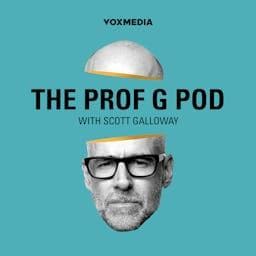Interior designer Nate Berkus is one of the most recognizable names in design. He started his firm at 24 with nothing but authenticity and hustle, building an empire spanning TV, books, product lines, and high-end interiors that's landed him on the AD100 list for a decade. His journey includes 12 years as Oprah's design expert, surviving the 2004 tsunami, and building a life with Jeremiah Brent as one of TV's first openly gay families. With his new book Foundations releasing November 18th, Nate reflects on what it takes to stay creatively obsessed for 30 years and build a household name in design.
• How he started his firm at 24 and convinced clients to take a chance on him
• Working with Oprah and his strategic approach to media
• How surviving the 2004 tsunami fundamentally changed him and his reflections on that experience
• Why he believes design is part magic, part alchemy, and part sociology
• How he and Jeremiah Brent collaborate as both partners and business collaborators
• The future of design and how AI will reshape the industry
02:30 Intro
03:15 The Origin of His Design Obsession
06:10 Why Design Is Sociology
08:27 Starting a Firm at 24 With Nothing But Authenticity
14:28 How Surviving the 2004 Tsunami Changed Everything
19:50 The Strategy Behind Using TV as a Platform
23:00 A Funny Oprah Story
24:46 Why TV Was Always a Means to an End
28:40 How He Stays Creatively Obsessed After 30 Years
32:38 Never Stop Learning and Do What Feels Effortless
34:07 Partnership With Jeremiah as Parents and Business Partners
39:30 Why He Wrote Foundations and What It Means
42:15 How AI Will Impact the Future of Design
46:44 His Approach to Curation in the Creator Economy
50:05 Reflecting on His Biggest Life Moments
Follow Inspired and Alexa:




































